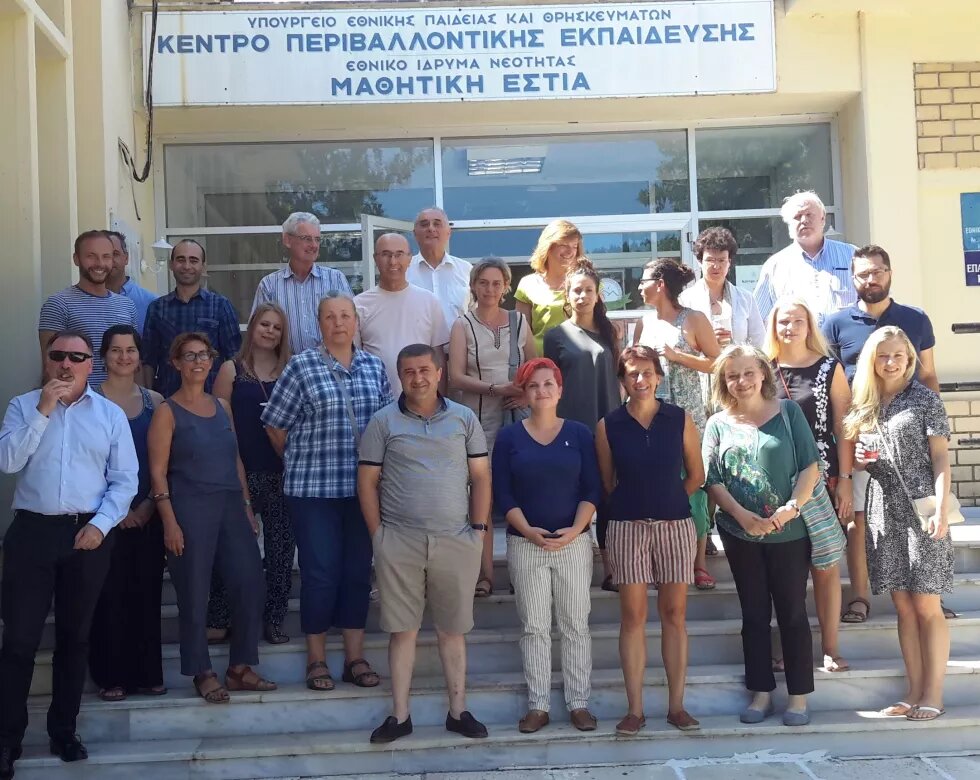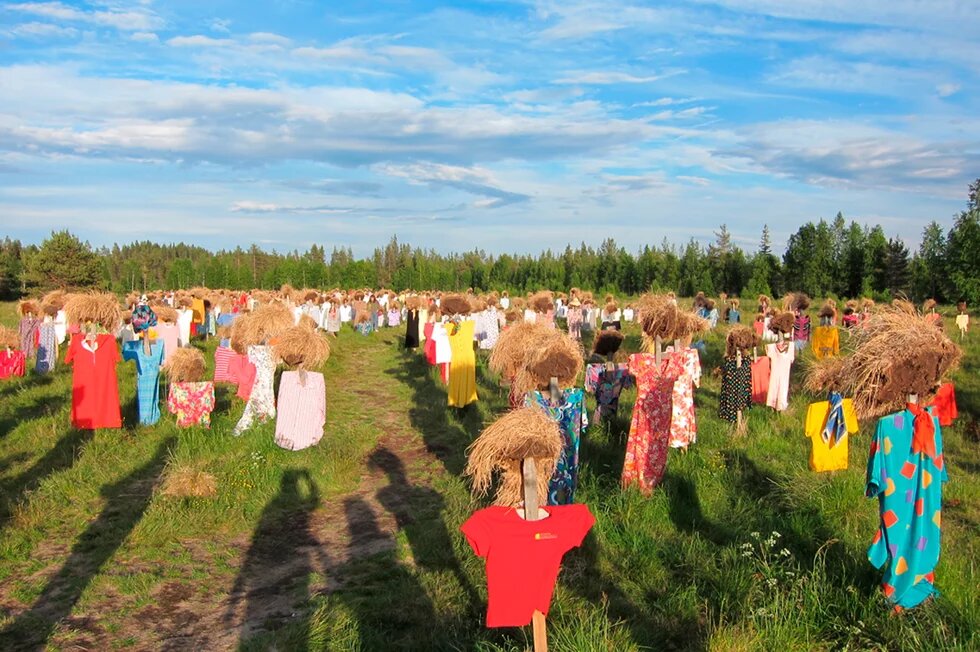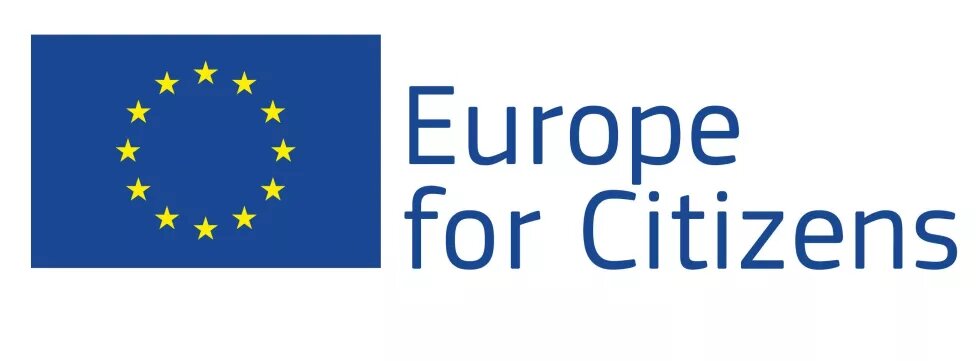

The summer academy on "Social Economy and Sustainable Rural Development" aims to explore the contribution of social enterprises and cooperatives to rural areas, but also focus on ways to enhance their formation and trading success as well as demonstrate courses of action through best practice examples collected from across Europe.
The 15th Summer Academy took place in Mouzaki, Karditsa, Greece from 16th to 23rd July 2016. It was a collaboration between the Euracademy Association, the Development Agency of Karditsa and the Heinrich Böll Foundation Greece. About 35 participants from all over Europe (Great Britain, Estonia, Germany, Armenia, Turkey, Slovenia, Greece) joined the summer course.
Social enterprise is a dynamic and inspiring way of doing business. Social enterprises are innovative, independent businesses that exist to deliver a specific social and/or environmental mission; they form a diverse community and their approach, which seeks more-than-profit, is adopted by a huge range of organisations of every size, operating in every corner of Europe and in most sectors of the economy. Social enterprises trade in all markets, selling goods and services to individual consumers, local authorities, government and private businesses. Just like any private sector business, their aim is to make a profit. However, all profits or surpluses are always reinvested back into their social and environmental purposes.
The main advantage of social enterprises is that they allow young or new to a business sector individuals, without substantial capital to spare, to enter the business world and create employment, offering at the same time a service to their communities. However, often, the inexperience and limited financial capacity of the partners, constitute an obstacle to their development. To thrive, social enterprises need support, especially when they start-up in a rural environment. Successful examples of such support, point to a “social entreprise ecosystem” which needs to be established in a rural area, to ensure the networking, mutual support and access to small capital necessary for starting a social enterprise.
The 15th Summer Academy of the Euracademy Association aims to explore the contribution of social enterprises and cooperatives to rural areas, but also focus on ways to enhance their formation and trading success as well as demonstrate courses of action through best practice examples collected from across Europe.
Download the programme here.
Discussion topics
Questions to be addressed by this year’s Summer Academy include the following non-exhaustive list:
- What is the social economy and social enterprise, how does this way of doing business differ from other forms of enterprise, how are they defined and what is meant by “values based entrepreneurship”?
- What benefits do social enterprises, rural cooperatives and the wider social economy bring to rural areas?
- What are the preconditions necessary for the formation of rural social enterprises and how can the formation process be supported, what tools are required by rural communities to enhance these processes?
- Who can support the social enterprise development process? What are the roles of local authorities, Local Development Agencies, NGOs and local enterprises?
- How do we define a “social enterprise eco-system” and how best it can operate?
- What can we learn from examples of best practice across Europe?
- What are the links between rural social enterprise and social innovation?
- How can we measure the performance of social enterprise and determine the value
The Target Group
The 15th Summer Academy welcomes participants from all over Europe who are working in the field of rural development. In particular, for this year’s summer academy, we are targeting managers and staff of social enterprises and co-operative based in rural areas; managers and animators of rural development based in Local Development Agencies; local and regional authorities or similar organisations, including NGOs; rural businesses; policy and decision makers; researchers, academics, training providers, students and experts in related fields.
The course is designed for around 40 participants, who will be invited to share their experiences, to acquire new knowledge and skills and to benefit from the wide networking opportunities offered by Euracademy and co-organising partners. Participants should have a reasonable command of English.
The Methodology
The summer academy includes lectures; discussion groups in the form of workgroups of up to 8 participants following each lecture; study tours focusing on specific local development “issues” related to the subjects of social economy operation, support for community based enterprise and sustainable rural development; study trip reports which the participants prepare and present; panel discussions and special-topic workshops. Collective work is strongly promoted during the summer academy on the principle that all the participants learn from one another, sharing knowledge and experiences on an equal basis.
The Programme
This summer academy will benefit from the experience of 14 previous Summer Academies held in an equal number of different locations around Europe, on different themes relating to sustainable rural development. Following the arrival of participants on 16th July, an international dinner is held in the evening to warm up the group and give opportunities for participants to meet and discuss in a relaxed environment. The first three days are devoted to lectures and discussion workshops. The following two days are spent on the Thematic Study Tours. Each tour covers a specific area and includes practical examples on the chosen study theme. Study Tour reports are prepared by participants, which describe their experiences and make proposals for implementing activities and strategies in the area to enhance social enterprise and sustainable rural development. These reports are presented and discussed in a plenary session on the day following the study tours. The final day will be devoted to lectures, panel discussions, debating and drawing conclusions, evaluating the Summer Academy and networking. The departure day is 23rd July 2016.
Further information
Euracademy Association
Empedocleous 17
11635 Athens Greece
T. +30 2107525660
E. info@euracademy.org
W. www.euracademy.org
Development Agency Karditsa
Meg. Alexandrou 34
43100, Karditsa, Greece
T. +30 2441042363
F. +30 2441071636
E. bellis@anka.gr
W. www.anka.gr
Heinrich Böll Foundation Greece
Aristotelous 3
54624, Thessaloniki, Greece
T. +30 2310 282829
E. kyriaki.metaxa@gr.boell.org
With the support of the European Union
